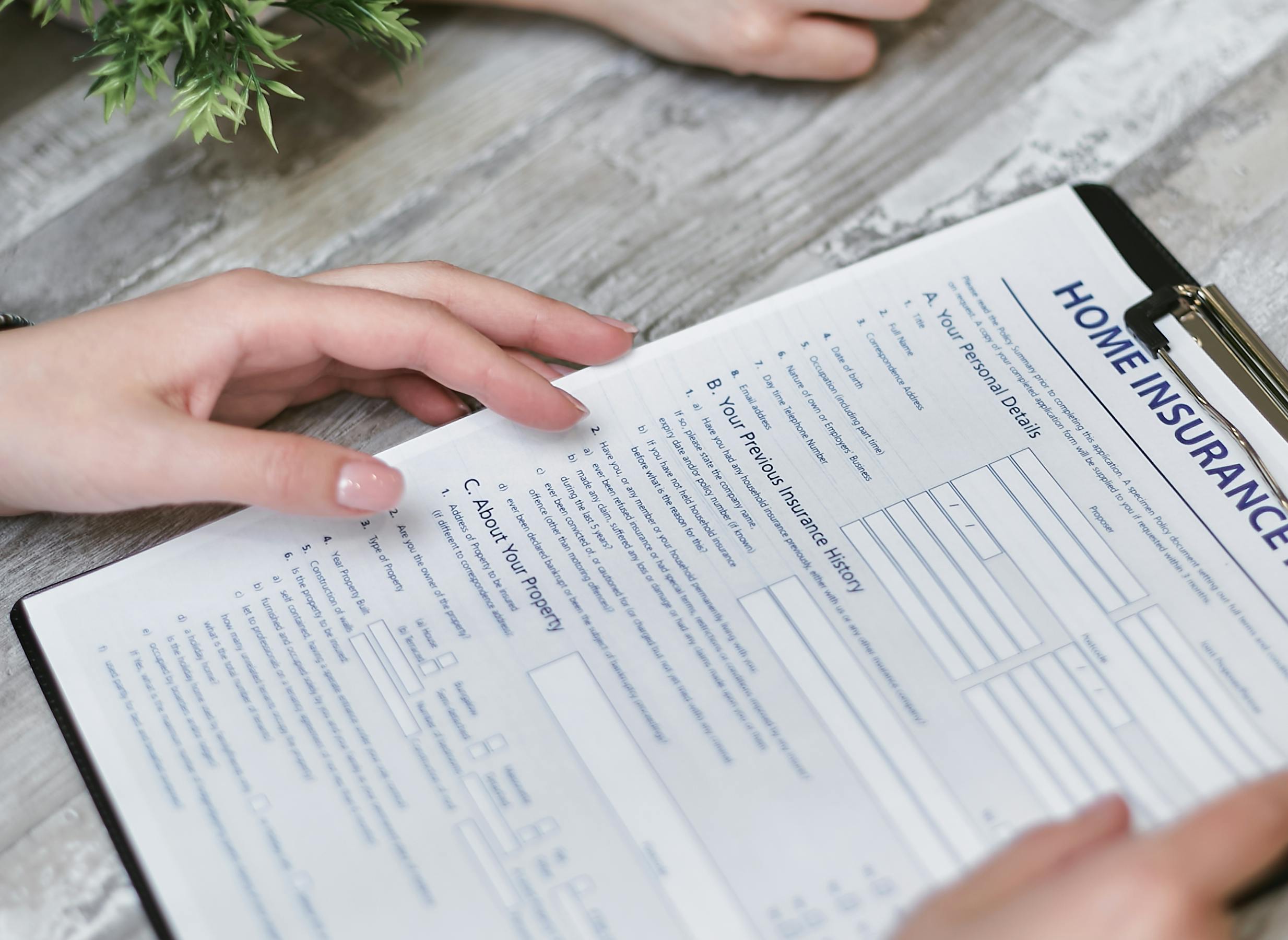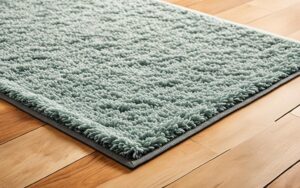Owning a home is a big deal. It’s one of the biggest investments you’ll make. To keep your home safe, getting affordable home insurance is key. This guide will cover why home insurance is important, the types of policies out there, how premiums work, ways to save money, and the steps to file a claim.
Factors Affecting Home Insurance Premiums
Home insurance premiums can change a lot based on different factors. Knowing these can help you make better choices about your coverage. This can lead to saving on your home insurance rates. Let’s look at the main things that affect your home insurance cost considerations.
Location and Geographical Risks
Where your home is located is a big factor in your home insurance premiums. Homes in areas often hit by natural disasters, like hurricanes or floods, cost more to insure. Insurers look at the risk level and set their rates based on this. Also, if your area has a lot of crime, your premiums might go up. This is because homes in such areas are seen as more likely to be broken into or vandalized.
Home Construction and Age
The way your home is built, like its age and materials, affects your home insurance rates. New homes with modern, fire-safe materials might cost less to insure than older ones. The type of roof, if you have security systems, and the home’s condition matter too. They help the insurance company figure out the risk level.
Knowing these factors lets homeowners lower their home insurance cost considerations. Keeping up with maintenance, making upgrades, and adding safety features can help. Working with your insurance company to see what you need can lead to better home insurance rates for you.
Saving Money on Home Insurance
Finding ways to cut costs on your home insurance is a smart move. There are many strategies to get cheaper coverage without losing protection. These methods can help you save money.
Bundling Insurance Policies
One top way to save is by bundling your home and auto insurance. Many companies give discounts for buying multiple policies together. By doing this, you could save up to 20% or more on your insurance bills.
Increasing Deductibles
Another strategy is to raise your deductible. This is the amount you pay before your insurance starts covering costs. A higher deductible means lower premiums. But, make sure you can afford the deductible if you need to make a claim.
For the best savings, always check your policy, look for discounts, and make smart choices about coverage. This way, you can protect your home and keep insurance costs down.
Home Insurance for Renters
As a renter, it’s crucial to protect your stuff and your money. Your landlord’s insurance usually doesn’t cover your things or your liability. That’s why renters insurance, also known as home insurance for renters or tenant insurance, is key.
This insurance covers your personal items like furniture, electronics, and clothes if they get stolen, damaged, or destroyed. It also protects you if someone gets hurt in your rental. This means you won’t have to pay for legal stuff or damages.
Key Benefits of Renters Insurance
- Protects your personal belongings from loss, theft, or damage
- Covers your liability if someone is injured in your rental property
- Provides additional living expenses if your rental becomes uninhabitable
- Offers peace of mind and financial protection for renters
Renters insurance is usually pretty cheap, costing between $15 to $30 a month. The price changes based on how much stuff you have, where you live, and how much coverage you pick.
When looking for renters insurance, make sure to check the policy details. Know about the coverage limits, deductibles, and what’s not covered. This way, you can pick the right protection for your needs and budget.
“Renters insurance is an affordable way to safeguard your personal belongings and provide financial protection in case of unexpected events. It’s an essential investment for anyone renting a home or apartment.”
Getting renters insurance is a wise move for tenants. It helps protect your stuff and your money. By knowing the benefits and options, renters can feel secure in their rental homes.
Securing Adequate Coverage for High-Value Items
Protecting your most valuable items often requires more than a standard home insurance policy. Items like jewelry, collectibles, fine art, and antiques need special coverage. They are often at risk of theft or damage.
Jewelry and Collectibles
Jewelry and collectibles are very valuable, both emotionally and financially. Home insurance for high-value items usually covers them, but the coverage might not match their true value. To fully protect them, consider a jewelry and collectibles insurance policy or add a rider to your home insurance.
Fine Art and Antiques
Protecting fine art and antiques needs a special plan. Fine art and antiques insurance covers their appraised value against theft, damage, and disasters. This insurance gives you peace of mind, knowing your valuable items are safe.
When getting home insurance for high-value items, work closely with your insurance company. Understand your needs and the risks of your valuable items. This way, you can be sure your most precious items are well-protected.
Home Insurance and Natural Disasters
Natural disasters like earthquakes and floods can be a big threat to your home. Standard home insurance often doesn’t fully cover these risks. It’s key for homeowners to know about special insurance for these dangers.
Earthquake Insurance
Earthquakes can badly damage homes, leading to high repair costs. Even areas not often hit by earthquakes can be at risk. Earthquake insurance covers damage to your home’s structure, your belongings, and extra living costs from an earthquake.
Earthquake insurance isn’t part of regular home insurance. You must buy it separately or add it to your current policy. The price depends on your home’s location, its age and build, and how much coverage you want.
Flood Insurance
Floods can also cause huge damage to homes, ruining personal items and causing water damage. Like earthquake insurance, flood coverage isn’t in standard home insurance. If you live in a flood area or want to guard against flood damage, get a separate flood insurance policy.
The National Flood Insurance Program (NFIP) offers affordable flood insurance for homeowners and renters. These policies help cover fixing or replacing your home and personal items lost to floods.
For home insurance for natural disasters, it’s vital to check your policy’s limits. Getting earthquake insurance and flood insurance ensures your home is well-protected against these disasters.
Home Insurance Claim Process
Filing a home insurance claim can seem daunting, but it’s easier with the right steps. Start by telling your insurance provider about the incident quickly. This could be theft, a natural disaster, or another covered event. They will help you with the paperwork, like listing what’s damaged or stolen and providing photos and receipts.
It’s important to work closely with your insurance company’s team during the claim process. They will check how much damage there is and figure out what coverage you have. Be ready to answer their questions and give any extra info they need. Following their advice and keeping in touch will make sure your claim goes smoothly and your property gets fixed quickly.
Being patient and thorough is important when you’re filing a claim. It might take some time, but with the right steps, you can get through it and recover from the event. Knowing how the claim process works helps you protect your home and your finances.
FAQ
What is the importance of home insurance?
Home insurance is key for homeowners. It protects your property and finances from unexpected events like fire, theft, and natural disasters. Having enough coverage helps you recover from these events and keeps your home’s value stable.
What are the common risks and perils covered by home insurance?
Home insurance covers many risks and perils, like fire, theft, vandalism, lightning strikes, windstorms, hail, and some natural disasters. Knowing what your policy covers helps you pick the right one for your needs.
What are the different types of home insurance policies?
There are several home insurance policies, including HO-3, HO-5, HO-6 for condo owners, and HO-8 for older homes. Each policy offers different levels of coverage. It’s important to look at your needs to find the right one.
What factors affect home insurance premiums?
Home insurance premiums depend on several things, like where your property is and the risks it faces, and the home’s construction and age. Knowing these can help you get better coverage and save money.
How can homeowners save money on their home insurance?
Homeowners can save on insurance by bundling policies and raising their deductibles. These steps can give you cheaper coverage without losing protection.
Why is renters insurance important?
Renters insurance is vital for tenants because it covers their personal stuff and liability not covered by the landlord’s policy. It protects your things and financial well-being if something unexpected happens, like theft or damage.
How can homeowners ensure high-value items are adequately covered?
If you have valuable items like jewelry, collectibles, fine art, or antiques, you need extra coverage. This ensures these items are protected if they’re stolen, damaged, or lost.
What considerations should homeowners keep in mind for natural disaster coverage?
Homeowners should know that standard policies might not fully cover natural disasters like earthquakes and floods. Getting special coverage for these risks is key to protecting your property.
What is the home insurance claim process?
The claim process for home insurance includes documenting the incident, filing with your provider, and working with them to fix your property quickly. Knowing this process helps you handle it better and get the most from your coverage.









